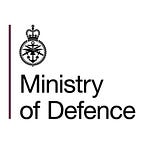Meet the Army Captain stopping big game poachers in their tracks 🐾
An Operation Corded 9 Liaison officer talks about his personal experience while being deployed in Lusaka.
Introduce yourself and tell us what do you do?
“I am Captain Davidson, I’m the Operation Corded Liaison Officer. I’m working out of the British High Commission, Lusaka, the capital of Zambia.”
What are you doing in Zambia?
“I am deployed as part of Operation Corded 9, a British military anti-poaching operation to help tackle the ongoing illegal wildlife trade going on in East Africa.
I am the key officer who takes part in creating a dialogue in Zambia, linking up the British Army in Zambia to the nation’s governmental departments and those back in the UK.
The Illegal Wildlife Trade is the 5th most lucrative crime network and is worth £17 billion across the globe.”
“The UK is a leader in conservation and is committed in the fight against the Illegal Wildlife Trade”
Find more of our case studies here:
What’s the purpose of preventing Illegal Wildlife Trading?
It has devastating effects on our ecosystems, it also feeds corruption and undermines good governance. On top of this, COVID-19 has highlighted the role of wildlife markets that have little to no regulation, in spreading diseases globally.
How important is this operation?
Operation Corded represents a cross-government effort in the fight against the IWT and focuses on developing an effective counter-poaching force by working with the Park Rangers from the Department of National Parks and Wildlife (DNPW).
Operation Corded 9 is the fourth iteration in Zambia and has trained 340 park rangers.
During this operation, the training has focused on developing Zambian instructors to promote lasting change. The Zambian instructors will be equipped to return to their national parks and train park rangers, creating a lasting effect in developing a counter-poaching force in Zambia.
Alongside the instructional skills, the Zambian students have also received advanced medical and military skills training.
How important is the operation to you?
For me, having the opportunity to deploy on a British Army operation that works in supporting conservation has been incredibly satisfying and rewarding.
“Our Zambian partners have been incredibly welcoming and made our time here that much more enjoyable.”
I do not doubt that we will keep in touch, and I will take great pride in following their fight against the IWT.
I’ve seen first-hand how committed the Zambian people are to developing their tourism industry, as well as ensuring a coherent conservation strategy is implemented nationwide.
“I’m confident they can become a regional leader in conservation.”
The introduction of new techniques and equipment make a difference. Rangers are now issued light weight patrol packs and first aid kits.
With this independence they have gained confidence in their ability to operate further from base areas, allowing them to sustain work in more isolated locations where the poachers are more active, and ultimately protect a greater number of wildlife species.
Find out more about Illegal Wildlife Trading:
